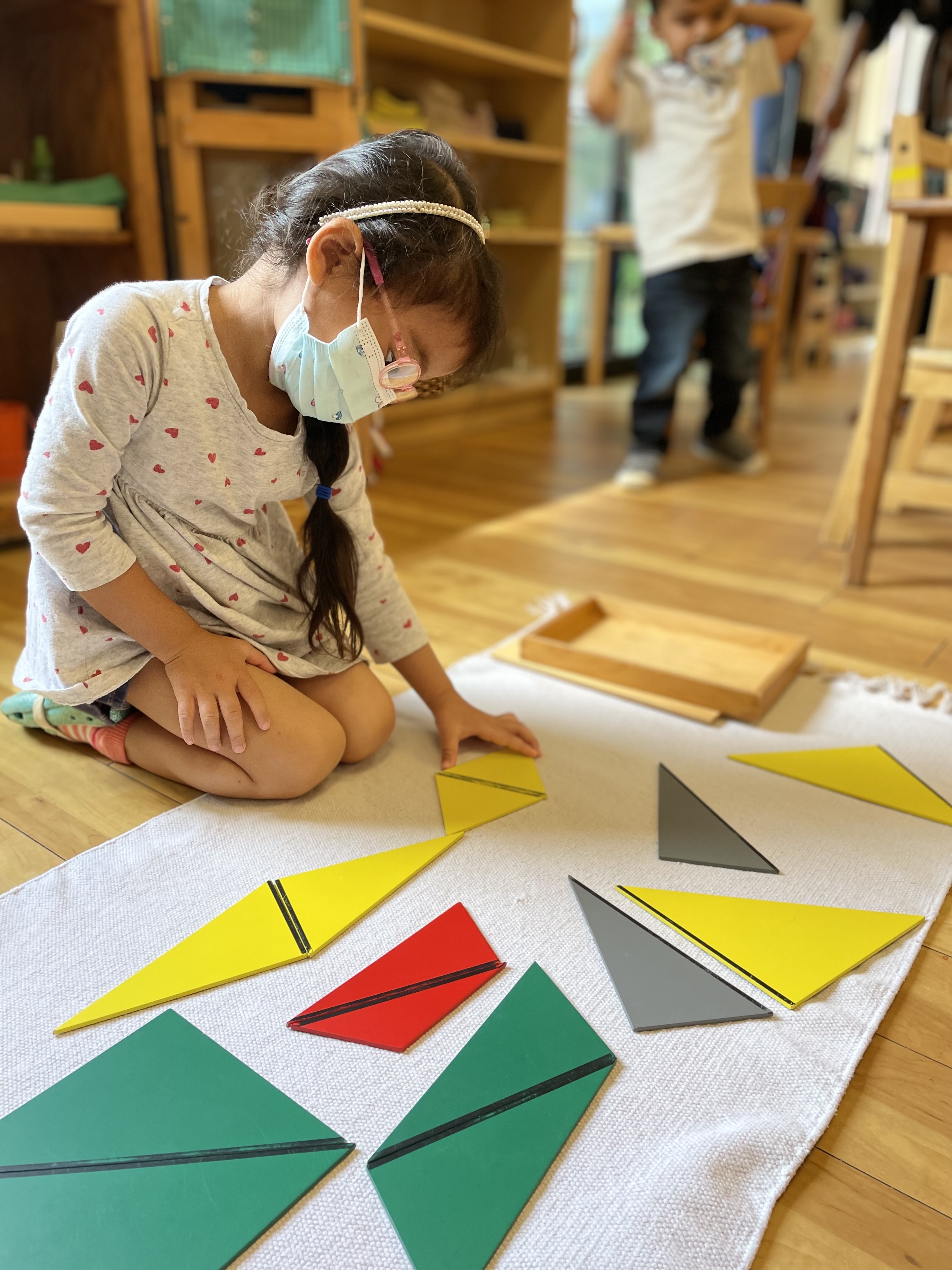(858) 759-0631
EQ is every bit as important as IQ
Emotional Intelligence, also known as Emotional Quotient (EQ), is based on the concept that parents and children can build strengths in more than just academic categories. Intelligence Quotient (IQ) on the other hand is a measure of a person’s reasoning ability to gauge how well someone can use information and logic to answer questions or make predictions.
Four core components of building your child’s EQ at Lifetime Montessori School include:
- Building Relationships
- Self-Motivation
- Empathy and Self-Awareness
- Emotional Control
Building Relationships
For a child to listen to an adult, the child must be listened to first. When parents have an engaging relationship with their child to participate and help, their child becomes part of a successful communications process.
For example, if your child won’t eat broccoli, parents simply have a conversation and the child is heard. “We have broccoli and green beans, which would you like?” you say and they opted for the alternative. “Wonderful, today’s choice can be green beans” is an optional answer. Thus, your child still gets a vegetable and a dinnertime problem is averted.
Another element: Montessori classroom teachers let kids figure things out on their own. At our school, students earn self-respect and teachers earn trust because all parties feel heard and validated.
Self-Motivation
Allowing your child to make mistakes is a big part of creating self-motivation.
We’re always encouraging children to try again so they can achieve success in a task. We also revisit their past successes to remind them that things take time—but, you can do it! When a child believes that, they will be motivated to keep trying.
The concept of individual choices and being able to take your time with a project to ultimately get it right is what makes a Montessori preschool child more motivated.
Empathy and Self-Awareness
A diverse classroom helps show children how other people live and feel.
Usually, a child looks only at himself or herself. But, understanding that different people have different viewpoints because they have different backgrounds is how children learn that other people are separate and different from you…and, all points of view are valid.
This creates a self-awareness where children begin to understand their emotions, drives, and effect on others. Since a Montessori classroom mixes ages and diversity, the children have constant exposure to different needs and ideas to help build their empathy.
Emotional Control
In the Montessori setting, students learn how to identify their feelings and identify strategies to help them manage their emotions. Montessori teachers use positive self-talk, visualizations, and re-framing past interactions to help students manage their feelings.
Summary
The Montessori Method is a 110-year-old system based on building a whole child.
At Lifetime Montessori School, we seek to build emotional intelligence in our students and guide them to become confident and academically superior students who will succeed in the Workforce 2040.

